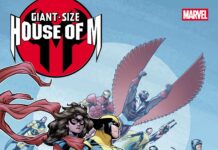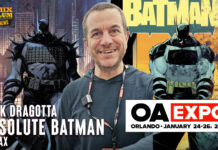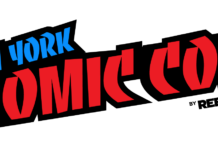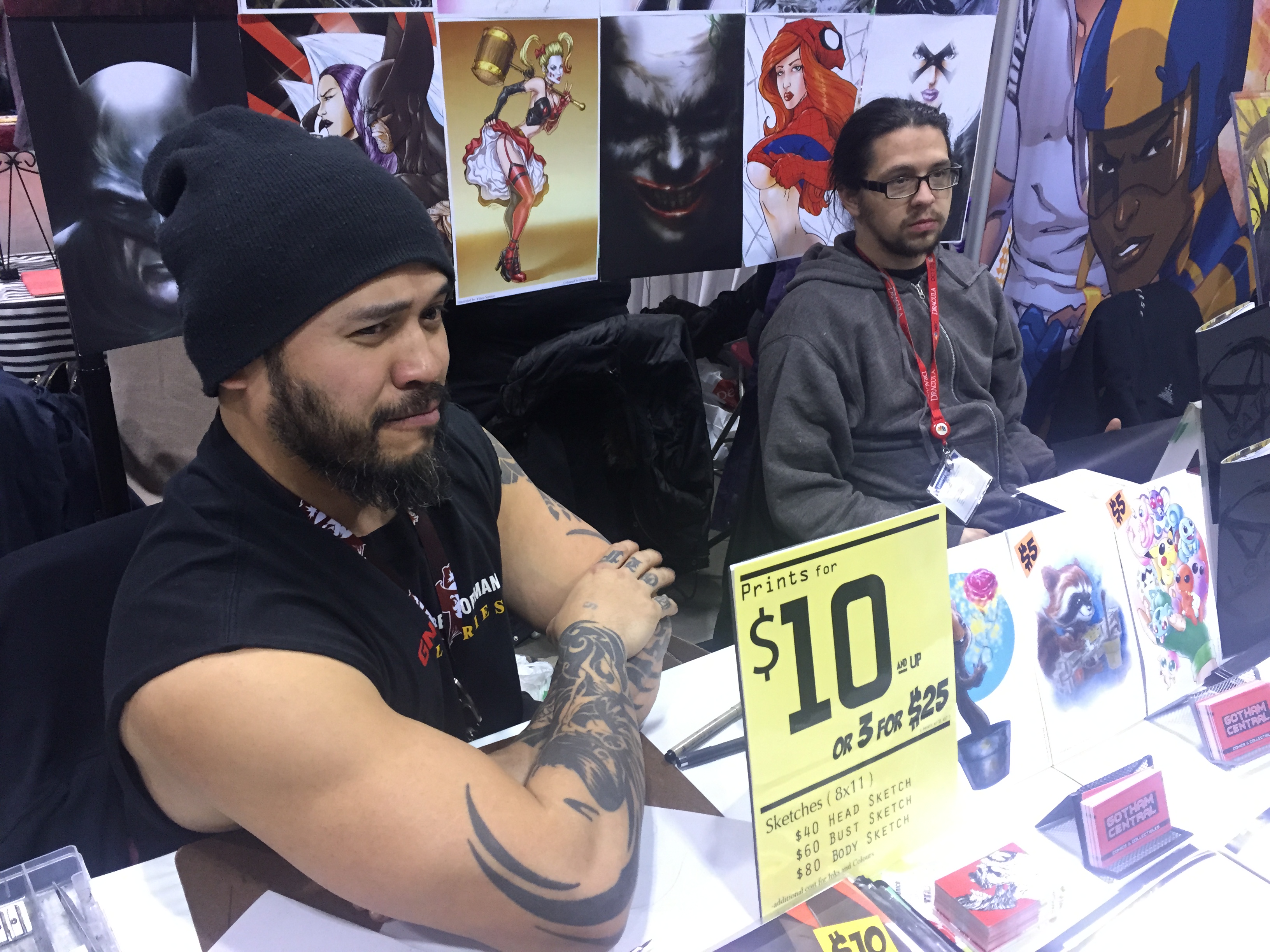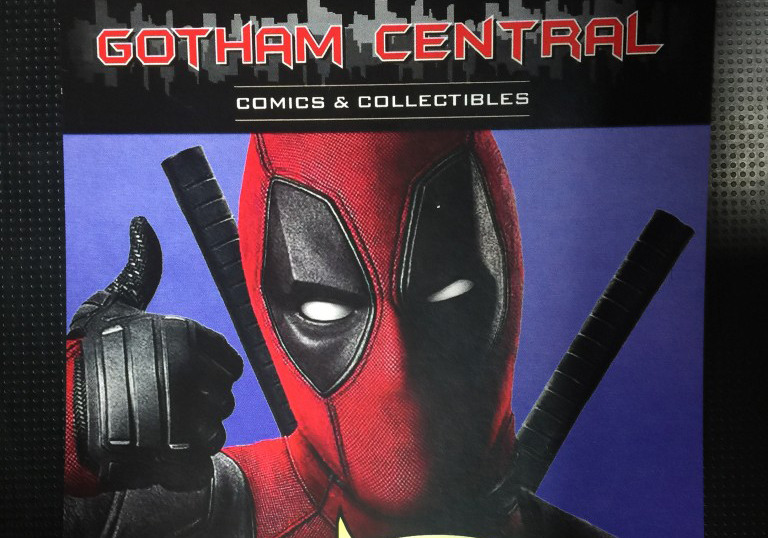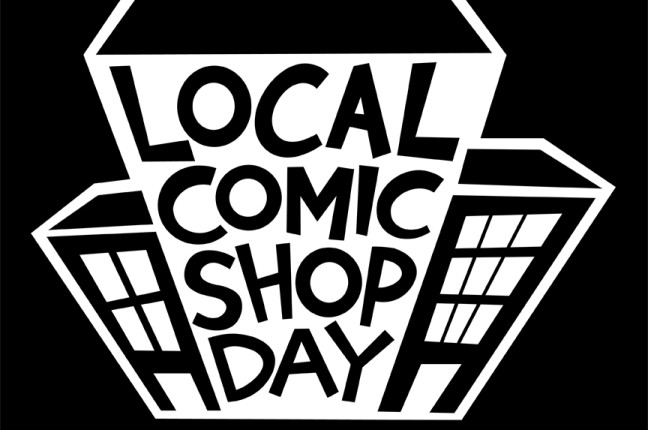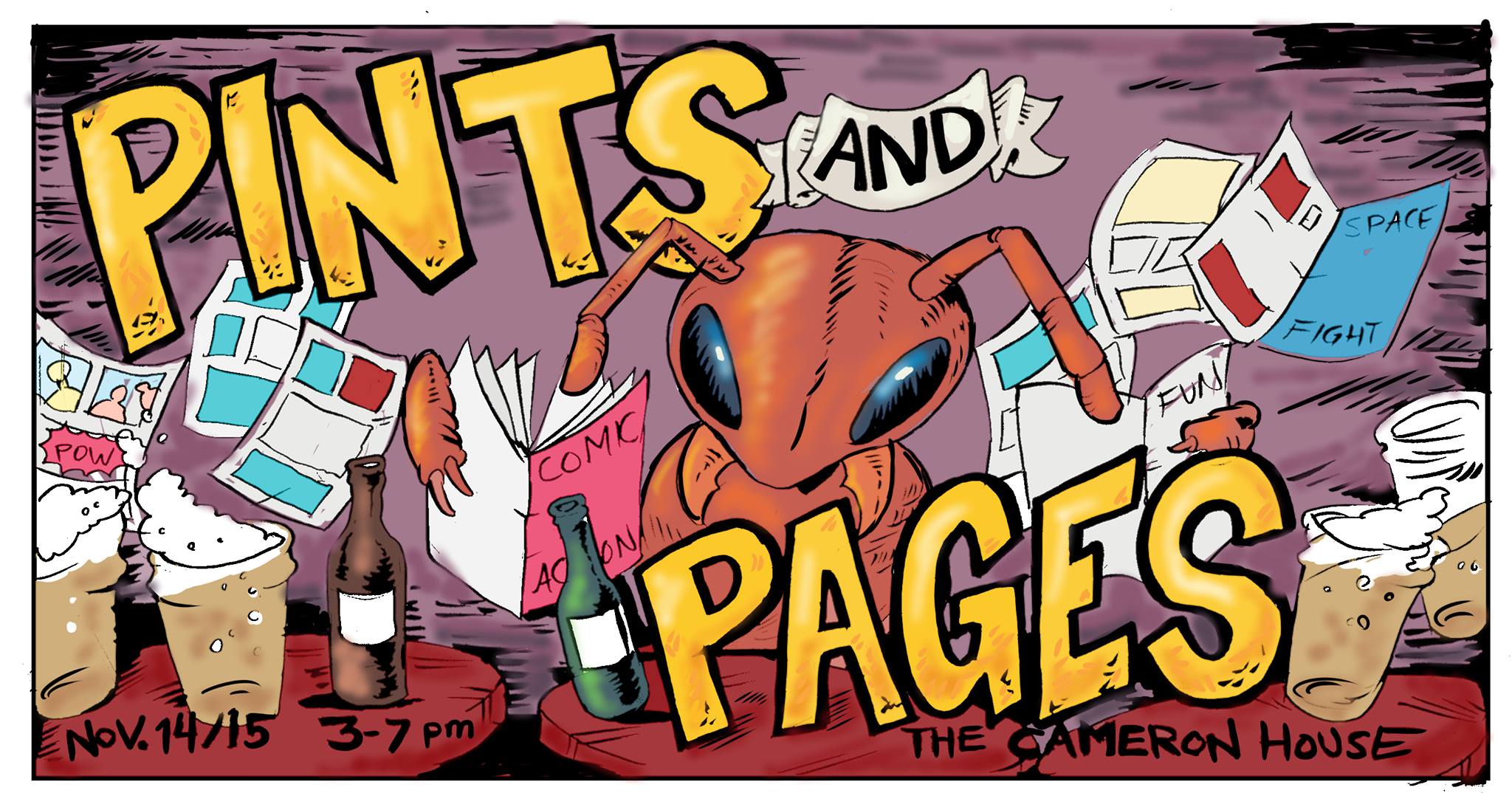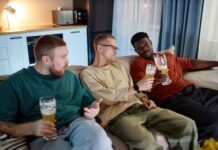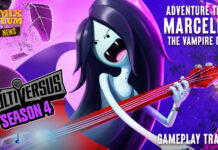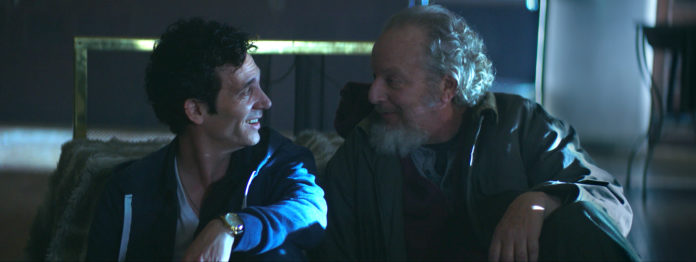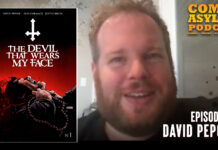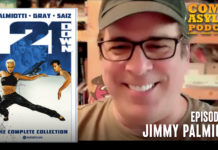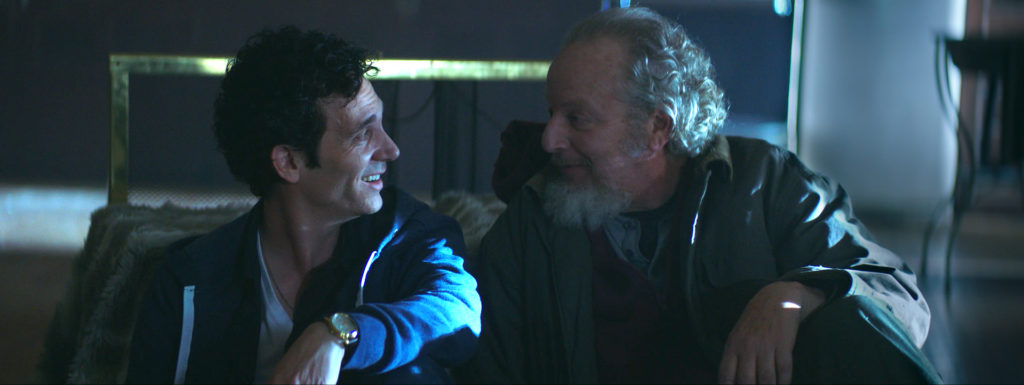 Comix Asylum recently had the pleasure of chatting with writer and actor Jonas Chernick about his time travel film James vs His Future Self, working with Daniel Stern and Frances Conroy and surviving during the global pandemic.
Comix Asylum recently had the pleasure of chatting with writer and actor Jonas Chernick about his time travel film James vs His Future Self, working with Daniel Stern and Frances Conroy and surviving during the global pandemic.
SB: It’s a pleasure to talk to you considering how topsy-turvy things are right now.
JC: I don’t know what you’re referring to. (Laughs)
SB: (Laughs).
JC: Yeah, no I’m good. I’m safe and my family and I are making the most of it, maybe even dare I say it, enjoying the downtime. I’ve had to put all the work on hold essentially and just be there with my kids to help with the home schooling. I’m doing a lot of cooking and going for walks and stuff. Taking a minute to stop and slow down has been interesting.
SB: It’s strange because it’s almost like we are living in a sci-fi movie.
JC: Oh yes, totally.
SB: In a way it harkens back to what you guys are doing in James vs. His Future Self. How do we as humans react when faced with the unexpected?
JC: Yeah, I mean the parallels are uncanny and really interesting. The movie is a time travel story and a romantic comedy but ultimately, it’s about a man who is so obsessed with the past and so focussed on the future that he doesn’t see where he is in the moment. The whole movie is about his future self trying to impart this perspective on him so that he can change his life and appreciate the now.
And I find myself in this unexpected place where we didn’t think this was going to happen. We had plans and we thought we knew where we were headed and all of a sudden that stops. I found that the only way to combat the anxiety and the creeping feelings of dread and uncertainty about where we are going is to stop thinking about when is this going to end and when are we going to go back to normal and what will the future hold? We’ve just got to take a breath and be present. That’s been my saving grace, particularly those early weeks, when you wake up in the morning and all you can think of is what is going to happen? Is the world going to be ok? What’s going to happen to the economy and the world markets? So, it’s been pretty amazing that I made a movie about that very same topic and now I’m using the theme from the movie to survive.
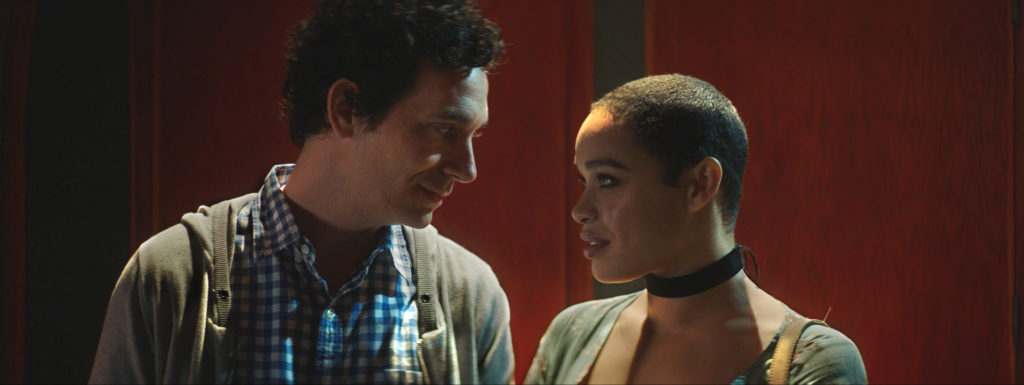 SB: (Laughs). So true. I think what I’ve been talking about with friends, family and colleagues is how we take things for granted. Thinking that something is always going to be there or that I can get to it tomorrow. And then like James, you experience a loss and you spend so much time figuring out how to not experience that loss again or to right it.
SB: (Laughs). So true. I think what I’ve been talking about with friends, family and colleagues is how we take things for granted. Thinking that something is always going to be there or that I can get to it tomorrow. And then like James, you experience a loss and you spend so much time figuring out how to not experience that loss again or to right it.
JC: That’s right. I think we are all struggling with that right now. We have our civic human responsibilities to physically isolate and wash our hands and be aware of our small part of this but that is all we can really do. Sure, we can look after our neighbours and things like that but I’m talking on a global level. We’re kind of helpless and it’s up to agencies and parties that are far more knowledgeable and have more influence than we do to decide what will happen next and how the rules will change. So, we are kind of at the mercy of that, which on one hand makes you feel a little powerless, and it can be scary but on the other hand it’s also deliberate. Other than doing what you need to do and helping those around you, you can kind of sit back and let the professionals figure that stuff out.
SB: Yes, and to not get too political, there’s always this yin and yang about big government vs. small government. I think that in either case, all you want as a citizen of wherever you live, is that the people that you have placed in power are making the right decisions.
JC: A hundred percent. As a proud Canadian and at the risk of getting too political, I’ve been really impressed with how we’re handling things and how our leaders are taking care of us. I mean so many people have clicked a button and they are getting relief money directly deposited into their bank accounts. I’ve told some American friends of mine and they didn’t believe me.
SB: I have to admit that being a born and bred Canuck that I’m quite happy with how things are going. You know that nothing is perfect, but for all intents and purposes we are fortunate.
JC: Absolutely. Can you imagine what it’s like to wake up in the morning every day as the leader of a country of 30 million people and they have entrusted you with their safety and well being? It’s overwhelming. It’s crazy to think of and nobody imagines this when they run for office. It’s just wild and there are so many ways that you can handle it or react under that pressure. I think that right now between us and our neighbours there are two very different responses to this kind of crisis. It’s pretty fascinating historical stuff.
SB: I would agree and if nothing else it just proves that getting out and voting and being informed sometimes is the greatest power we all have.
JC: Absolutely.
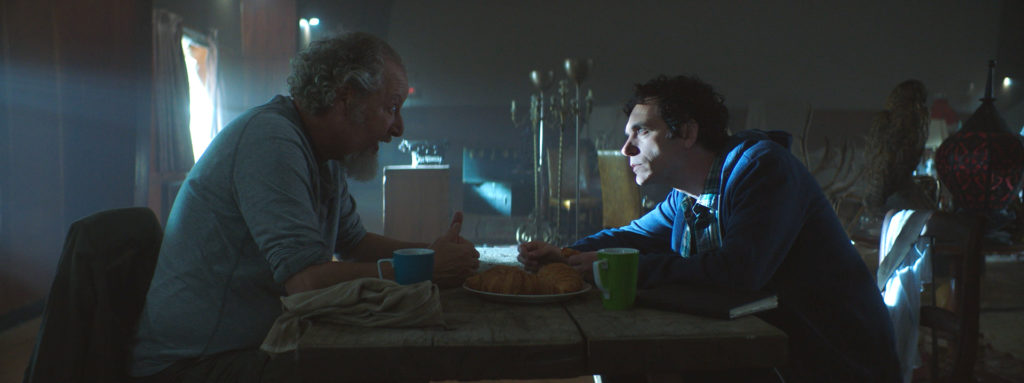 SB: So, getting back to the movie, how did you and Jeremy LaLonde come up with the idea?
SB: So, getting back to the movie, how did you and Jeremy LaLonde come up with the idea?
JC: The idea was something that I’ve been holding onto and kicking around for decades. The first time I would have come up with this thought was when I was 19 and backpacking through Europe. People would ask were I was going, and I’d say to Europe to find myself. I went and I didn’t find myself, but I did think about what would happen if I stumbled into a bar in Belgium and literally and found myself and struck up a conversation. I thought about what I would ask myself and what I would and wouldn’t want to know. That stuck with me for years and years and years and I never really cracked the story.
Then I got really into time travel films and literature in my twenties and thirties. I started making movies and thought that I’d one day like to tell my own time travel story. Then I saw Primer in 2004 at the Toronto Film Festival. I walked out of the theater and thought, well that’s that. I’m never going to try to write a time travel movie because nothing will ever be as brilliant as this. So, then I let it go and it came back about five years ago when I was watching a friend of mine perform live music in downtown Toronto. Unrelated to her music, something kicked in and I thought wait a minute. My time travel story is a comedy and it uses time travel as a device to explore character. My idea is to get away from the logistics of time travel and to focus on character and the narrative and that’s when I came up with the idea of man versus himself. I didn’t quite know what it looked like or who the characters were but when I shared that idea with Jeremy LaLonde in passing, when he asked me if I had any sci-fi ideas that we could crack, he loved it. We then immediately began to expand and develop it into what eventually became James vs. His Future Self.
SB: What is it about time travel that continues capture our imaginations?
JC: I actually think it’s everything. The idea of time travel is something that is so delicious and expansive of an idea. The fascination for me is rooted in the understanding that time is relative. That’s just a statement that doesn’t make a lot of sense until you get into it and start reading about it and what Einstein meant by it and what Hawkins uncovered. When you start to look into the science of it, where astronauts travelling at incredible speeds, the further away they go from earth, the more distorted their perception of time is compared to our experience of time on earth, you realize that time is relative. Thus, the possibilities are endless and that’s a pretty mind-blowing idea. I lie awake at night thinking about this. It’s truly fascinating as a storyteller because there are so many places you can go with it that it feels like this never-ending field of ideas that you can draw from.
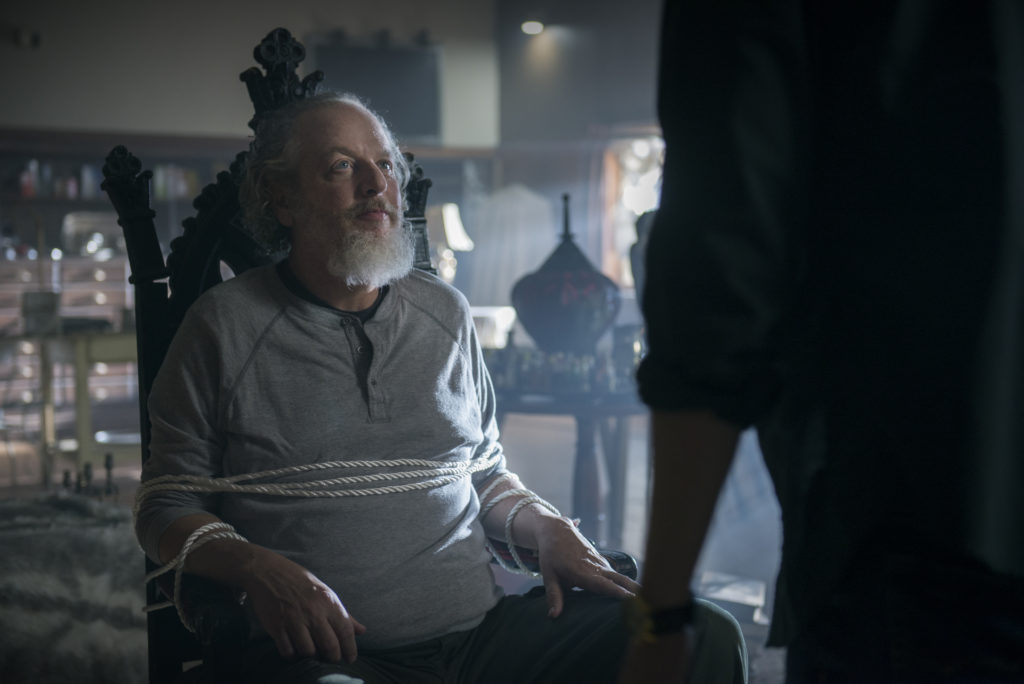 SB: You guys did a wonderful job assembling a great cast, including Daniel Stern and Frances Conroy. What was it like working with the cast and them in particular?
SB: You guys did a wonderful job assembling a great cast, including Daniel Stern and Frances Conroy. What was it like working with the cast and them in particular?
JC: Well it was a dream cast. We are well aware of that and aren’t humble about it. We got so lucky. Daniel Stern was at the very top of the list from the very beginning. We grew up on his films in the 80’s and 90’s and we have this relationship with him already. The movie is about time and nostalgia and he’s a guy we all have some connection with and to have him in the movie it immediately takes you back to a place or a time from your childhood or youth. Working with him was a dream come true.
Daniel came on board almost a year before we shot, and his involvement was really intense and deep. He worked on the script with us. He didn’t actually write, but he consulted, gave us notes, poked holes and asked us questions. He made really brave and bold suggestions that Jeremy and I were open to. So ultimately the script that we shot was a real collaboration. His input was invaluable to us. And on set he’s just a pro. He brings everybody’s A-game because you want to be great around him. Also, he hasn’t had a role like this before. It’s been a long time since we’ve seen him in a lead. He’s a character actor but to get to play a character that has so much range – to go from psychotic, to loving, to vulnerable, to angry, all the comedy and the drama – he really sunk his teeth into it. He was rewarded for it because he won best supporting actor at the Toronto After Dark Festival and he’s currently nominated for best supporting actor for the Canadian Screen Awards. He told me that he hasn’t been nominated for acting awards before. Why not? He’s so great.
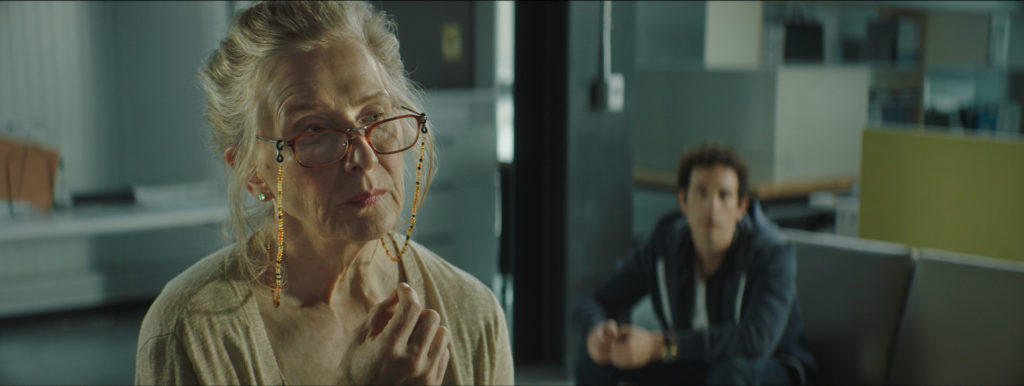 And Frances Conroy was what we call a Hail Mary pass. We hadn’t cast the part when we were into production and we had about a week. We had enough time to throw an offer at one actress that we thought was out of our league that we prayed would somehow respond. She was the one we picked and within 24 hours Jeremy was on a call with her chatting about particle physics. She was so game. She showed up and had already read all of these books and had so many ideas. She’s a true pro. Frances Conroy has been on the best on Broadway with multiple Emmy nominations and Golden Globe Awards. So yeah, a dream cast, and we were lucky.
And Frances Conroy was what we call a Hail Mary pass. We hadn’t cast the part when we were into production and we had about a week. We had enough time to throw an offer at one actress that we thought was out of our league that we prayed would somehow respond. She was the one we picked and within 24 hours Jeremy was on a call with her chatting about particle physics. She was so game. She showed up and had already read all of these books and had so many ideas. She’s a true pro. Frances Conroy has been on the best on Broadway with multiple Emmy nominations and Golden Globe Awards. So yeah, a dream cast, and we were lucky.
SB: It definitely resonates on screen. How did being a co-writer effect your performance as James and did any improvising take place, with you or the other actors during shooting?
JC: Y’know this is the fifth movie that I’ve either written or co-written and acted in as well and it’s this interesting kind of schizophrenic experience. I’ll write the scripts for years and it’s in my bones and I know it so well. I know the character inside and out as a writer and there’s always this point where we flip over to production where I go from being a writer and take off that hat and put on my actor’s hat. I’ll read the script for the first time as an actor and it never fails, 5 out of 5 times, it’s like reading the script for the first time. I suddenly find all of these things, these questions, complications and challenges that I hadn’t seen as the writer. When I wear the actor hat, I say no, James would never say this. Who wrote this garbage? I’m always able to come back to it from an actor’s point of view and it makes the script better. It’s fun for me to read it as an actor for the first time. All of it is in me. I know the world. I know the motivation and objectives of the character and the dynamics that are in there, but I get to see them from a fresh perspective and it’s really fun. When it comes to improvisation, Jeremy is an actor friendly director. We shoot what’s on the page and we fix and tweak along the way. Then once we’ve got it, if there is time and there usually is because he’s a very economic director, we get to play. He calls it the fuck it take and gives the actors confidence that we’ve got the scene in the can. Now we can have some fun and try something different. Once in a while some of that creeps in and it’s a little bit of both.
SB: James vs His Future Self is available now on Bell, Shaw and iTunes. It was supposed to get a theatrical release, but the Covid-19 Pandemic changed those plans. Can you see the film industry changing how films are released moving forward?
JC: Yes. First, we should mention that it is on Shaw and Bell right now with Rogers and Telus VOD coming right up so keep an eye on that. There is a lot of talk right now about how this is going to change things. It still remains to be seen if these digital releases for giant movies are going to make as much money and an impact. I’m a glass half full guy and I am an optimist. Call me crazy but once we get a clean bill of health and the doors open, people are going to the theaters, concerts, live events in a big way. People will always crave the experience of sitting in a movie theater with other people, responding to a movie on a big screen and eating popcorn in the company of others. To me that is a human experience that we have been enjoying for thousands of years and I don’t think it’s going anywhere. I think it’s great that we can watch movies from the comfort of our home. I think it’s great that we have options but for me it will always be to go to the theaters first if that option is there. I saw The Irishman in the theaters. I saw Marriage Story in the theaters. So even big, exciting tentpole movies that are hitting streaming services early, I will go to see them in the theater and those venues weren’t empty when I was there. They were full of people. I think people are going to race back to the theaters. It will have been a great lesson and a great experiment, and it may change certain movie’s plans, but I don’t think the model is going to shift.
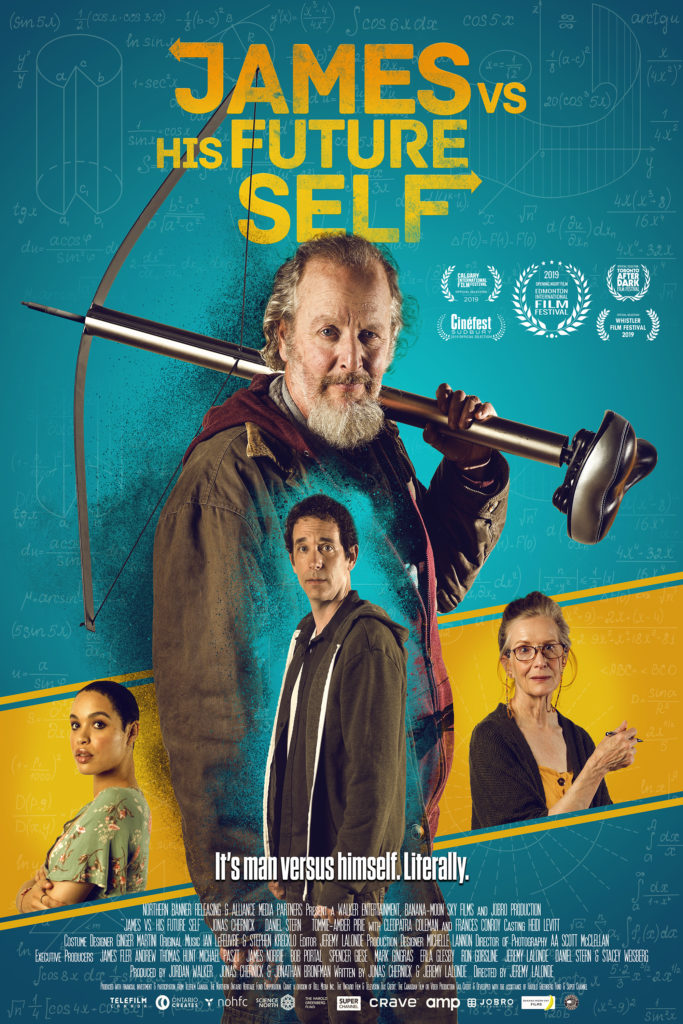 SB: There is also something about watching a film with other people. If you look at tentpole films that have a huge legacy, like Star Wars part of the fun of that experience is going to see it with like minded individuals. So, you’d lose something for sure by watching it at home.
SB: There is also something about watching a film with other people. If you look at tentpole films that have a huge legacy, like Star Wars part of the fun of that experience is going to see it with like minded individuals. So, you’d lose something for sure by watching it at home.
JC: Absolutely and Jeremy and I are the first to admit to that. A lot of directors and filmmakers travel the festival circuit with their films, and they can’t bear to sit in the theater and watch it again because they’ve watched it so many times during production. Jeremy and I sit in with every audience and experience the movie with them despite how many times we’ve seen it and how sick we are of hearing ourselves on the screen. Because for us that’s what it’s all about. I come from the theater and was a theater actor before I was a film actor. Seeing and feeling and experiencing that response in real time, that’s what it’s all about. I make these movies for audiences and I perform for an audience. I want to be there and to see an audience react to it. So, the theaters, film festivals and the actual releases they are an imperative part of my process. I have to watch it with a group. It’s not the same as watching it in your living room. It’s a community experience and it was always intended to be consumed that way. That’s why I’m confident that it will continue to be consumed that way even if there are individuals that don’t want other options.
SB: I totally agree with you. From the creators‘ side of it, especially coming from the theater where you can get instantaneous reaction, compared to the delay of months or even a year or so of knowing what an audience likes or resonates with it when working on film, that kind of juice is needed by anyone who is creative because it informs your next project.
JC: Yes! How do you know if what you are doing is working and resonating with audiences if you don’t see an audience responding? Jeremy and I know exactly which jokes play and which ones don’t quite play. We’ve seen the movie 80 times with audiences on the festival circuit. Would we change things? Probably not. We’re happy with the movie the way it is. Most of those jokes are playing but for next time we know when you are hitting emotions just right in a scene; when you want to linger a little longer on a character’s face; when you want to pull back as opposed to being in – these are the things that you can only really tell by observing an audience responding to the movie in a group.




